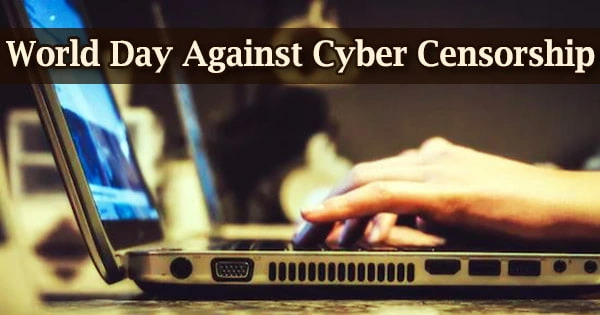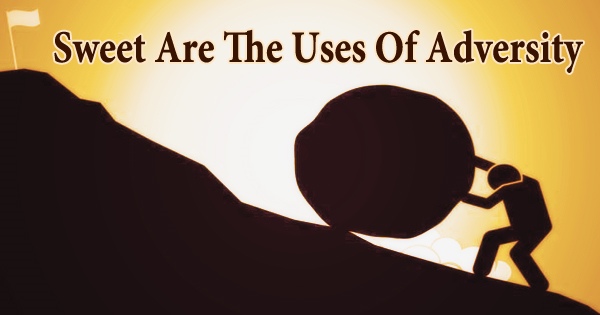The World Day Against Cyber Censorship, also known as the international day of freedom of expression on the internet, is an annual online event conducted on March 12 to draw attention to the ways that governments all over the world are preventing and limiting free speech online. In 2008, Reporters Without Borders and Amnesty International started observing this day. The Chief Executive Officers of Google, Yahoo!, Inc., and Microsoft Corporation received a letter from Jean-François Julliard, Secretary-General of Reporters Without Borders, and Larry Cox, Executive Director of Amnesty International, requesting observation of the day. Reporters Without Borders designed a logo of a computer mouse escaping from a chain to represent the yearly event. Cyber censorship restricts or prevents access to the internet as well as some types of communication and information. Governments claim to do this for security reasons, but it is frequently a strategy for repressing dissent by limiting citizens’ ability to speak freely, associate freely, and organize freely. The internet is a useful resource for activism, reporting, and raising awareness. At the touch of a button, it instantly connects millions of individuals around the world and shares knowledge. the regulation or repression of Internet access, publication, or viewing. Governments or private entities may carry it out at the direction of authorities or on their own initiative. Self-censorship may be practiced by people or organizations for ethical, religious, or commercial reasons; to adhere to social norms; as a result of intimidation; or out of concern for legal or other repercussions. The idea that the internet will be a free and accessible platform for expression was at its core. Sadly, internet restriction is spreading across the globe. But although technology gives people the means to censor the Internet, it also gives people ways to fight back. Even while they embrace the right to free speech, some Internet users could become victims of propaganda and false news. Here are some things to remember on this World Day Against Cyber Censorship while you browse the internet to avoid being duped by false information or articles that have been banned by organizations or governments:
- Don’t rely on social media as the sole source of information: Never trust news or information that is being shared on Facebook or Twitter without first verifying it. Never distribute these posts or images without first confirming their legitimacy.
- Always report fake or provocative content: Always report violent or demeaning video clips, images, memes to the platforms they were posted on.
- Use a VPN: Utilize a Virtual Private Network (VPN) to conceal your online identity. Your digital network can benefit from an additional layer of protection and privacy provided by VPNs. In nations like China that censor the internet, they can also assist as a source of protection from government surveillance.
Every year on March 12th, World Day Against Cyber Censorship is commemorated to raise awareness of the value of online free speech and expression. The day also serves as a reminder of how governments around the globe suppress internet free expression. Internet censorship is a relatively new phenomenon. The U.S. government passed the Communications Decency Act in 1996, making it unlawful to publish online content that was deemed “patently offensive” or “indecent.” While Section 230 was upheld, the bulk of the Act was ruled to be unconstitutional. Under Section 230, social networking sites, internet service providers, and other intermediaries are no longer held accountable for the access or distribution of their users’ content. Two years later, the United States approved the Digital Millennium Copyright Act (D.M.C.A.), making it illegal to spread technology that does not comply with copyright laws. The DMC hinders fair use of copyrighted content and freedom of expression, according to critics who have long made this claim. Another criticism is that it stifles scientific and technological advancement. An individual, blog, cyber-dissident, or group that has significantly defended online freedom of expression is given the Netizen Prize by Reporters Without Borders every year on World Day Against Cyber Censorship. Over the years, the organizations have advocated for internet free expression. They also seek to draw attention to any instances of online censorship that obstruct the free flow of information. The internet continues to be a platform for common people to have their voices heard and influence social change, despite the fact that many individuals contend that free speech may and frequently does include false information, propaganda, and censorship. A list of “Enemies of the Internet” was first published in 2006 by Reporters Without Borders (Reporters sans frontières, RSF), an international non-governmental organization located in Paris that supports press freedom. Because “all of these countries distinguish themselves out not only for their capacity to block news and information online but also for their nearly systematic repression of Internet users,” the organization categorizes a nation as an enemy of the internet. An additional list of nations “Under Surveillance” (formerly “Under Watch”) was added in 2007. A “net neutrality” order that classified ISPs as “common carriers” and outlawed discriminatory slowing or blocking was authorized by the U.S. Federal Communications Commission (F.C.C.) in 2015. The Net Neutrality ruling was challenged in 2016, but it was upheld. In 2017, however, the FCC revoked the order. The Great Firewall was made more difficult for activists, researchers, students, and businesspeople to go around in China the same year as V.P.N. services were started to be suppressed. The censorship of the internet has grown recently all across the world. It’s unlikely that the discussion will end very soon.
















